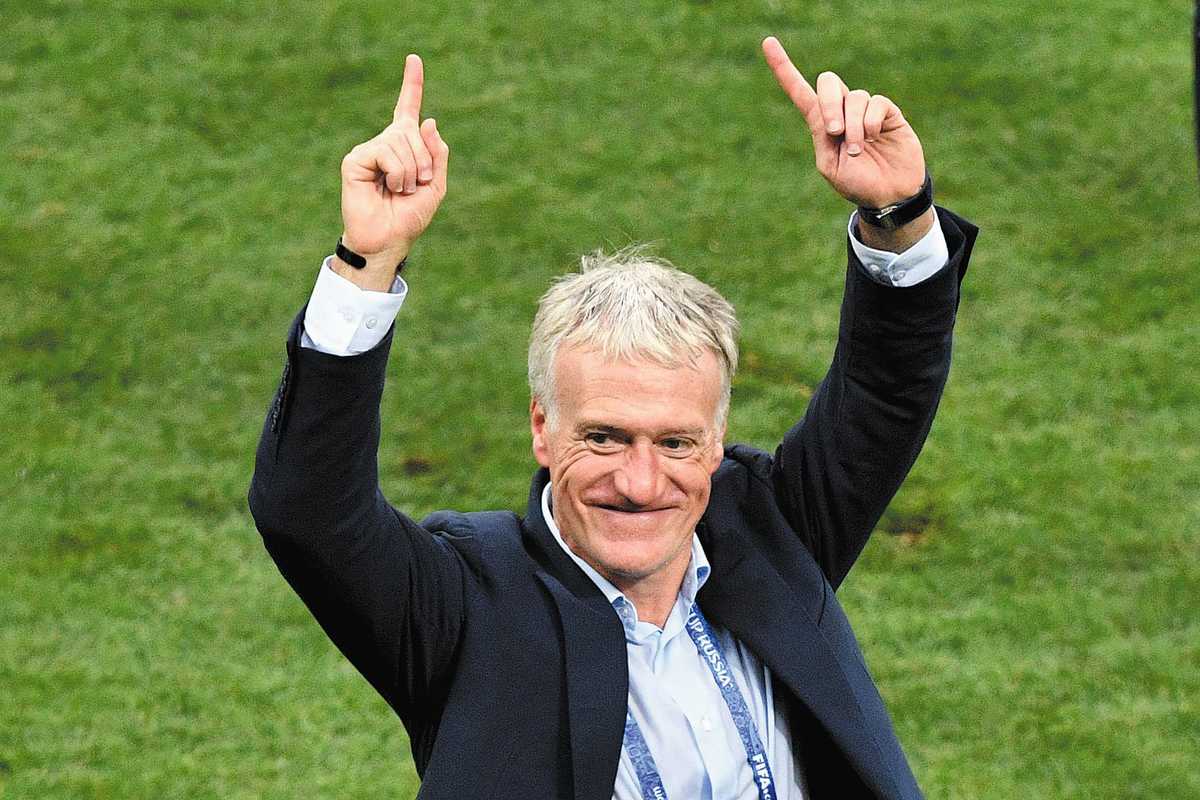
Didier Deschamps celebrates after winning the 2018 World Cup final against Croatia in Moscow. AFP
PARIS — Didier Deschamps, who will step down as France coach after the 2026 World Cup, will leave as the biggest name in the country's soccer history, with his Midas touch having earned the sport's greatest prize both as a player and a manager.
The 56-year-old, who also took France to the 2016 European Championship final and to a second World Cup final of his tenure in 2022, only to lose to Argentina on penalties, took charge in 2012 after winning silverware with every club he had managed.
Deschamps, whose obsessive competitive spirit manifested itself in finely assembled squads, is already France's longest serving coach after 165 games in charge.
As a player, he was the youngest captain to lift the Champions League trophy when he won the title with Olympique de Marseille in 1993, and, the midfielder, unflatteringly nicknamed the "water carrier" by Eric Cantona, also lifted the trophy with Juventus in 1996.
His legacy as a player and captain was there for everyone to see. The Basque-born Deschamps was the cement in the France team that won the 1998 World Cup and the following European Championship. It was no coincidence that the golden generation imploded after he retired following their Euro 2000 triumph.
France fans will hope history does not repeat itself when he stands down as coach after the 2026 World Cup, for which France has yet to qualify.
A natural-born leader, his coaching career started at Monaco, which he led to the Champions League final in 2003, before helping Juve gain promotion back to Serie A in 2007.
He then took Marseille to the French title, its first in 18 years, in 2010, before starting the France job in 2012.
In many ways, Deschamps followed in the footsteps of Aime Jacquet, the coach who guided France to the 1998 World Cup title — often criticized, but nearly always vindicated by results.
Jacquet recalled the influence and responsibility he invested in Deschamps.
"We were talking all of the time. He was my relay on the pitch," said Jacquet.
Deschamps' authority was rarely tested, and he quickly buried the ghosts of the 2010 World Cup in South Africa, when the France squad rebelled against its manager, Raymond Domenech.
He quashed any form of rebellion in the team, not hesitating to leave out the likes of Samir Nasri or Karim Benzema when he felt their presence would not benefit the group.
He gave Kylian Mbappe more freedom than other players, hoping his captain's genius would help him reach his goals.
It almost delivered his second World Cup title as coach in 2022, and next year, it will be the duo's last dance, and a chance to cement Deschamps' legacy.
While Deschamps' side has boasted the thrilling attacking talent of Mbappe, his team has also shown grit and unmatched defensive ability when it mattered most.
It is uncertain who will succeed him, but Zinedine Zidane is the heavy favorite for the job.
"It's a wise decision. I didn't send anything and I won't send anything (to Zidane). But, of course, we all hope it will be him after 2026," Christophe Dugarry, a former teammate of both Zidane and Deschamps, and one of the latter's most vocal critics, told RMC Radio.
"But, it's his choice, and it will be linked to discussions with him. It's a wish that I have, a personal wish that I've had for a long time. I hope it will happen one day. I hope it will be in 2026, from the bottom of my heart."
Reuters